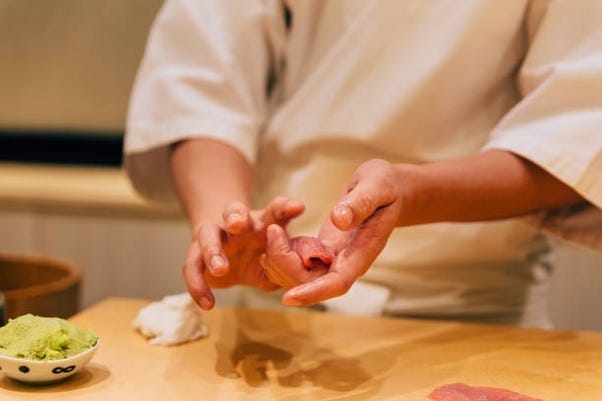- Japanetic
- Posts
- Ikigai is the downfall of birth rate in Japan (and everywhere else)
Ikigai is the downfall of birth rate in Japan (and everywhere else)
When finding yourself means losing the future
Japan's fertility crisis gets blamed on economics. "People can't afford kids." End of story.
Wrong diagnosis.
The real issue runs deeper than stagnant wages or expensive daycare. It's a values collision that most countries will face as they develop. Japan just got there first.
The structural trap
Japan's birthrate collapse looks economic on the surface:
Salaries flatlined since the 1990s while child-rearing costs climbed
Urban apartments built for singles, not families
Work culture demands 60-hour weeks with minimal paternal leave
Women expected to juggle careers and motherhood without systemic support
Extended family networks dissolved, leaving couples isolated
But these are just symptoms of a deeper transformation in how how people define a life worth living.
Pre-war Japan had higher birth rates for a simple reason: individual choice didn't exist.
Multi-generational households. Arranged marriages. Rigid hierarchies. Your duty was reproduction, not self-actualization. The family structure was authoritarian, but it worked for population replacement.
This system collapsed after WWII as Japan embraced nuclear families and personal freedom.
Now, with the panic about declining births, I am starting to hear that the solution is simple: Let’s just go back to authoritarian families.
Nope.
Once a society tastes individual ikigai, there's no reversing it.
Ikigai: the beautiful trap

Western self-help turned ikigai into a pastel Venn diagram about finding your passion. But in Japan, ikigai carries heavier weight.
The word originally meant "reason to live," often tied to duty or endurance. Post-war, it fused with work identity. Your career became your ikigai. Salarymen found meaning through corporate devotion, not family connection.
Today, many Japanese feel trapped by this equation. They're obliged to find meaning through overwork, leaving little space for relationships or children. Ikigai became another form of imprisonment.
But you can't uninvent self-realization. The genie won't return to the bottle.
The spiral we can't reverse
The best system to explain why we can’t go back is the Spiral Dynamics.
What is the Spiral Dynamics?
The Spiral Dynamics is a hierarchy of value structures consisting of eight levels that individuals express in their psychological lives.
These eight stages are developmental in that we each grow through them, and society has also evolved through these stages.
Here’s how Japan has been going through the levels since the end of WWII:
Traditional (Blue, level 4): Order through authority. Old Japan's patriarchal households and arranged marriages.
Achievement (Orange, level 5): Success through individual merit. Post-war ikigai tied to career advancement.
Humanistic (Green, level 6): Connection and quality of life over pure achievement. Younger generations rejecting "work equals worth."
Japan pioneered the transition from Blue to Orange. Now it's caught between Orange exhaustion and Green values that haven't yet found sustainable form.
You can't go backward. Once people learn to seek self-expression, they won't accept authoritarian family structures. But pure individualism kills reproduction.
The path forward requires threading a needle.

Beyond the subsidy trap
Most fertility policies throw money at the problem. Childcare subsidies, housing vouchers, extended parental leave.
These help at the margins but miss the core issue: cultural realignment.
If raising families conflicts with ikigai, people choose ikigai. The fix isn't making children cheaper. It's making family life compatible with personal growth.
What might actually work
Redefine contribution. Ikigai shouldn't require corporate ladders. Support craft businesses, local entrepreneurship, community leadership. Let people find meaning in smaller, more flexible ways that leave room for family.
Fix housing, not incomes. Larger family-friendly apartments near city centers matter more than subsidies that inflate rent. Geography shapes family formation more than cash transfers.
Work smarter, not shorter. Instead of mandating 35-hour weeks, focus on output-based evaluation. Remote flexibility and productivity tools free time without cutting pay. People need time leverage, not just time.
Build new villages. The extended family model is dead, but shared childrearing doesn't have to be. Co-housing projects, neighborhood daycare networks, childcare credit systems. Distribute effort without top-down enforcement.
Elevate family achievement. The current hierarchy runs: school → university → career = worth. If family doesn't rank in that equation, people won't choose it. Make building families itself a mark of accomplishment, not sacrifice.
The deeper pattern
Japan's crisis previewed what is coming everywhere. And they handled it a little bit better than other countries (e.g. South Korea is in a much worse situation now).
As societies develop, they face the same choice: authoritarian reproduction or individualistic extinction. Most will choose individualism, then wonder why birth rates collapse.
The societies that survive will be those that solve the ikigai equation: how to make personal meaning and family formation mutually reinforcing rather than competing.
This isn't about returning to traditional values. It's about evolving beyond them toward something that honors both individual growth and collective continuity.
Can a society built on individual self-realization sustain itself across generations?
The answer will reshape civilization itself.

